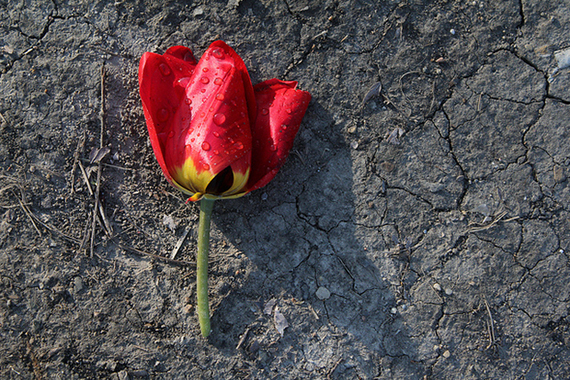There's a beautiful word that lies at the root of the lifestyle of the optimist: Resilience.
"The capacity to recover quickly from difficulties," says one definition.
The point is that shit happens. We live to overcome challenges. That's how we grow. Psychiatrist M. Scott Peck, who was influenced by the teachings of Buddha, started his bestselling book The Road Less Traveled with these words: "Life is difficult. This is a great truth, one of the greatest truths. It is a great truth because once we truly see this truth, we transcend it. Once we truly know that life is difficult -- once we truly understand and accept it -- then life is no longer difficult. Because once it is accepted, the fact that life is difficult no longer matters."
Optimism has nothing to do with ignoring reality and denying the bad hands that life often deals us. Bad days will come...and they will go.
So the challenge is to go as untouched possible through the bad days. That's where resilience comes in. But "untouched" does not mean disconnected. Resilience means adapting, taking in the facts, learning the lesson -- understanding and accepting, as Peck wrote -- and moving on. Resilience means finding an answer to the challenge we face.
In more and more environmental dialogues the word resilience begins to replace the word sustainability. Sustainability means keeping things intact. It means avoiding causing damage. Sustainability is a static concept. Resilience, though, is dynamic. Resilience is part of ongoing change. The world today is not the same as the world of 5,000 years ago. Nor will the world of the future much resemble our current reality.
And the same happens in our daily lives. Failing to accept changes we cannot escape can only frustrate us. That frustration is at the root of much pessimism. The optimist is resilient (learn more characteristics of the optimist). That resilience was a necessary part of human nature for thousands of years. There was no survival without it.
Author and management-consultant Margaret Wheatley, in a recent interview with The Intelligent Optimist, points to the importance of perseverance when it comes to living our lives. "We all stand on strong shoulders," Wheatley says. "And now it is our turn to serve the world. No big deal -- except for those in the Western world who were brought up in a time when the skies were the limit. Failure, setbacks, losing your way, were not part of the scenarios many of us were brought up in. Yet all other traditions talk of cycles that include destruction. Human beings have persevered throughout history."
Optimism is about living life optimally including the setbacks and the failures. It is about not giving up and finding a new answer. Because there is on thing we always control: Our response to whatever happens to us.
Do you persevere?

